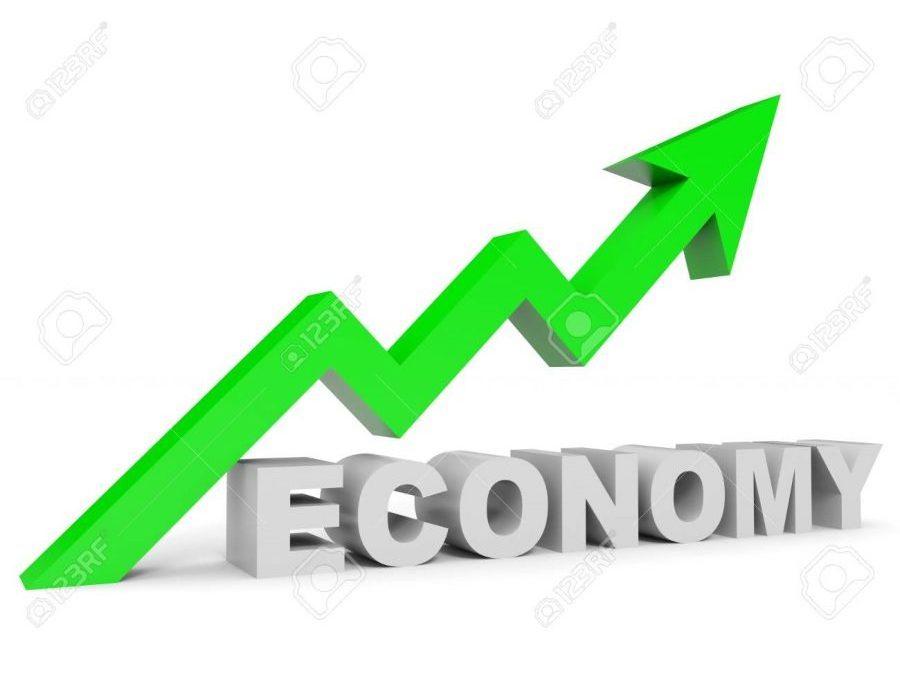MARKETS AND ECONOMY
2022: Nigerian economy engulfed in uncertainties, MPC member expresses concerns
Published
4 years agoon

A member of the Monetary Policy Committee (MPC) and Professor of Economics, Adenikinju Adeola Festus has expressed many worries for the Nigerian economy in the face of its many challenges in 2022.
He predicated his concerns on vulnerabilities induced by insecurity, rising COVID-19 cases, oscillating oil prices in the global market and dwindling investment appetite in the fossil sector, which may be compounded in 2022, being an election year.
Read Also:
In his personal statement contained in the full Communiqué of the last MPC meeting held in 2021 from November 22-23, he noted that despite the general improvements, albeit marginal in economic performance in October 2021, there are vulnerabilities and uncertainties in global and domestic economies.
According to him, insecurity remains a potent challenge to the Nigerian economy and domestic price formation.

Professor Adenikinju with Godwin Emefiele, the CBN Governor
He said that the drop in crude oil output to 1.52mbd in Q3 2021 from 1.54mbd in Q3 2020 due to oil theft and pipeline vandalism should be of concern given that the 2022 budget was predicated on 1.88 mbd.
In addition, the Don noted that the incidence of COVID-19 virus and its variants, given the low vaccination coverage in Nigeria presents its own uncertainty on the economy in the medium term.
“The rising negative sentiments among world leaders and leading investors to financing new investments in the development of fossil energy, may affect long term development of the petroleum sector.
“Furthermore, there is also the uncertainty around 2022, being a pre-election year. Usually, foreign investors are less likely to commit to new investment in the country, affecting foreign exchange reserves.”
To reduce the impacts of these challenges, Professor Adenikinju proffered that going forward, there is a need to harmonise monetary policy with the monetary and development targets in the newly approved Medium-Term National Development Plan.
According to him, there is also a need to decompose the intervention fund to those that went to boost aggregate demand and those that went into expanding the supply base of the economy.
“Careful examination of the contributions of these interventions should guide the decision on the pace of winding down the interventions in 2022.
“The Central Bank of Nigeria (CBN) must continue to explore ways of further derisking the critical sectors of the economy to enable the deposit money banks to lend to them,” he added.
While noting that CBN interventions cannot continue in the long term, he maintained that domestic banks must take on the responsibility of supporting households’ credit and the MSMEs.
“The unsustainability of PMS subsidy is an issue that the government should address urgently,” he also noted.
Share this:
- Click to share on X (Opens in new window) X
- Click to share on Facebook (Opens in new window) Facebook
- Click to share on WhatsApp (Opens in new window) WhatsApp
- Click to share on Pocket (Opens in new window) Pocket
- Click to share on Telegram (Opens in new window) Telegram
- Click to email a link to a friend (Opens in new window) Email
- Click to share on LinkedIn (Opens in new window) LinkedIn
You may like


Nigerian Banks Set New Target to Respond to Frauds


NCC, CBN Introduce 30-Second Refund Rule for Failed Airtime and Data Purchases


Banks’ N1.96Trn Black Hole: Who Took the Loans, Who Defaulted, and Why the Real Economy Suffers


How Policy Missteps Weigh Down Nigeria’s Fragile Banking Giants


Nigeria at 65: A Nation Still Waiting for a Banking Revolution


Nigeria’s Banking Woes: How One South African Bank Outvalues an Entire Industry












